American novelist, story writer, and screenwriter James Salter died on June 19th, leaving behind a body of work that presents a vision of a century in dramatic motion. He was a writer of the quotidian and a craftsman of the first water whose interest in sensory experiences is most evident in his arresting narrative passages. Food, drink, sex, the seemingly impossible beauty of things touched, witnessed, and heard—these are rendered in precise and yet often surprising terms in Salter’s work. In similar fashion, his dialogue—sometimes so lean in its construction as to risk sparseness—is crisp and at times biting, the words spoken by characters belying deeper motives or beliefs. Either ability—to craft such trenchant narration or to hear and replicate spoken language so shrewdly—is a remarkable and rare writerly gift. Noting here that Salter possessed them both seems an understatement.
Salter’s cross-generational appeal is also worth mentioning. Both his peers and younger writers have found in Salter’s sentences some particular beauty that, once experienced on the page, is impossible to shake. We’ve reached out to a number of them to ask if they have one of those unshakable Salter passages tucked away in their minds and if they might share it here as a way to honor his life and his memory.
Below, you’ll find reflections from twenty-four writers. Some come from Salter’s friends or colleagues; others, from those who studied with him. Others still come from distant admirers who knew James Salter only thorough the books themselves. In the passages below, certain novels and stories turn up time and again, such as A Sport and a Pastime and Light Years and the stunning story “Last Night,” while others, including the short stories “Foreign Shores,” “American Express,” “The Destruction of the Goetheanum,” and “Akhnilo” appear just once. Every passage represents Salter at his best, and it’s our hope that citing them here will encourage further reading and examination of James Salter’s exceptional body of work.
WRITERS REMEMBER JAMES SALTER
Tim Wille was a furniture designer, a little nervous and wild-eyed. When he talked to you he looked elsewhere, often at the wall. He no longer drank. He had been arrested while driving with a blood alcohol level that was .17 above the maximum limit. He’d spent the night in jail and thousands of dollars in lawyer’s fees over the following year. It was the best thing that ever happened to him—he gave up drinking, he said. He still had the look of it, though, along the edges.
— from All That Is
 Tim Wille is “a little nervous and wild-eyed,” but he doesn’t drink. Or rather, he no longer drinks. This is already a mild surprise; so is the fact that he counts his arrest for drunk driving as “the best thing that ever happened to him.” Such a few brushstrokes! And such complexity! Salter resists laxity, he resists equally the too-familiar and the overblown. We all know a person who has renounced a behavior but who still “[has] the look of it . . . along the edges,” but who except Salter has expressed that quality so exactly?
Tim Wille is “a little nervous and wild-eyed,” but he doesn’t drink. Or rather, he no longer drinks. This is already a mild surprise; so is the fact that he counts his arrest for drunk driving as “the best thing that ever happened to him.” Such a few brushstrokes! And such complexity! Salter resists laxity, he resists equally the too-familiar and the overblown. We all know a person who has renounced a behavior but who still “[has] the look of it . . . along the edges,” but who except Salter has expressed that quality so exactly?
A breathtaking technical mastery here—physical description and information and anecdote powerfully combined to create an indelible character—is put in service to evoking a world we recognize. It is one that feels closely observed and deeply personal but at the same time universal.
It is this density and truth that I go to Salter for—the sense that a person has been captured, a life.
Cara Blue Adams is a fiction writer and an assistant professor of creative writing at Seton Hall University.
The fall was coming. Everything seemed to deny it. The days were still warm, the great, terminal sun poured down. The leaves, more luxuriant than ever, covered the trees. Behind the hedges, lawn mowers made a final racket. On the warm slate of the terrace, left behind, a grasshopper, a veteran in dark green and yellow, limped along. The birds had torn off one of his legs.
— from “Foreign Shores”
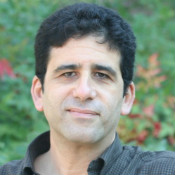 This story, which I first read in Best American Short Stories 1984 (almost certainly while riding the F train between Brooklyn and Manhattan), was my introduction to Salter’s work. I was trying to learn how to write stories myself, and this one struck me for the stark beauty of its sentences and the strange, voyeuristic feeling it left me with. A nineteen-year-old Dutch girl, Truus, takes a job as an au pair in the Hamptons, working for a divorced woman and looking after her six-year-old son. She meets a young man who is on vacation from Saudi Arabia where he works, or at least that’s what he tells her. She sleeps with him. He leaves but continues to send her letters. When Gloria, Truus’s employer, secretly reads some of these letters—which turn out to be obscene, and even suggestive of illegal activity—she ends up firing the girl, certainly unfairly.
This story, which I first read in Best American Short Stories 1984 (almost certainly while riding the F train between Brooklyn and Manhattan), was my introduction to Salter’s work. I was trying to learn how to write stories myself, and this one struck me for the stark beauty of its sentences and the strange, voyeuristic feeling it left me with. A nineteen-year-old Dutch girl, Truus, takes a job as an au pair in the Hamptons, working for a divorced woman and looking after her six-year-old son. She meets a young man who is on vacation from Saudi Arabia where he works, or at least that’s what he tells her. She sleeps with him. He leaves but continues to send her letters. When Gloria, Truus’s employer, secretly reads some of these letters—which turn out to be obscene, and even suggestive of illegal activity—she ends up firing the girl, certainly unfairly.
Truus, “nineteen, and in sulky bloom,” is the story’s erotic center, but she might not be the main character. I’m not actually sure “Foreign Shores” has a main character, which is part of what intrigues me about it, still. The point of view is omniscient, with only limited, momentary access to people’s thoughts; most of the story is cinematic, just setting and dialogue. The result is that all the characters seem mysterious, their motivations obscure, their actions and choices as much a part of this sensuous, privileged landscape as the sound of the mowers, the warmth of the slate, that military amputee grasshopper. Everything is suffused with the low hum of sex and secrets. We never know what Truus thinks of the letters she’s been getting. Does she find them erotic? Do they repel her but fascinate her at the same time? Does she simply not understand that she has other options? It hardly matters—Truus will leave, pushed out of this temporary summer world, in an almost naturalistic way, by forces beyond her control. Life moves on, casually, brutally. When, a few years later, Gloria—no longer with her boyfriend, Ned, who is marrying a younger woman—thinks she has seen a photo of Truus, with her “bad makeup and the morals of a housefly,” in Town and Country, her despair is evident: “The idea that there is an unearned happiness, that certain people find their way to it, nearly made her sick.”
Two years after reading “Foreign Shores,” I was assigned to Jim Salter’s workshop at Iowa, the first time (I believe) he’d ever taught. It took me a while to connect this handsome, middle-aged gentleman to the author of the story I’d found so memorable and unsettling. Jim’s demeanor and appearance were as graceful and controlled as his prose. He mostly said nice things about our work, occasionally admiring a poetic phrase, or declaring a story had “good bones.” I had the feeling that he didn’t think there was much he could tell us about how to write. You read other authors you admired—in his case, clearly, he’d been influenced by Hemingway—and then you wrote. He and his wife, Kay, were renting a house in town for the year, and a friend and I were invited over to play touch football with him a few Sunday afternoons (apparently, he’d been part of a literary touch football game back in Southampton, along with John Irving and some other impressive names I can’t now remember). Jim was too old, or maybe just too dignified, to do any running, but he loved throwing the ball, and his passes were strong, accurate spirals. I learned from him what a Gibson is (martini with cocktail onions—very nice), and how to crack an ice cube with the back of a spoon (apparently it interacts better with the gin). About how to write a story as good as “Foreign Shores,” I suspect he had no specific advice. It’s not something to analyze, really. You aim and throw, just hard enough to make it hurt.
Geoffrey Becker‘s most recent books are Hot Springs, a novel, and Black Elvis, a story collection.
Down past the bridge there were great skirts of ice along the banks, and people already out, men in overcoats, women bundled against the cold. They skated in blinding sunshine, scarves about their necks, shouting to each other, the ankles of the smallest children folding like paper.
—from Light Years
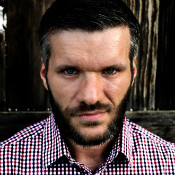 What do I love about this short passage? Hear how the subtle consonance of skirts and banks and overcoats leads to the hard “c” sound moving to the front of cold, pulling the reader through that first sentence. How skated mirrors skirts, foreshadows scarves and ankles. See how fast the first sentence is, with a possible comma omitted after “down past the bridge,” speeding it up, then the second half of the sentence slowing down with the appositive phrases unpacking “people already out”: “men in overcoats, women bundled against the cold.” Or how the second sentence moves away from the landscape of the first clause and stays with the people of the second, slowing down and going quiet, those hard “c” sounds growing less frequent as the sentence moves through its clauses before ending on a quiet, gentler sound, “the ankles of the smallest children folding like paper.” Hear the hush of “folding like paper,” see the subtle syntactic symbolism of that clause mimicking the thing it describes, a child’s ankle turning over, a harmless little bit of pain and danger interrupting the safety of the scene.
What do I love about this short passage? Hear how the subtle consonance of skirts and banks and overcoats leads to the hard “c” sound moving to the front of cold, pulling the reader through that first sentence. How skated mirrors skirts, foreshadows scarves and ankles. See how fast the first sentence is, with a possible comma omitted after “down past the bridge,” speeding it up, then the second half of the sentence slowing down with the appositive phrases unpacking “people already out”: “men in overcoats, women bundled against the cold.” Or how the second sentence moves away from the landscape of the first clause and stays with the people of the second, slowing down and going quiet, those hard “c” sounds growing less frequent as the sentence moves through its clauses before ending on a quiet, gentler sound, “the ankles of the smallest children folding like paper.” Hear the hush of “folding like paper,” see the subtle syntactic symbolism of that clause mimicking the thing it describes, a child’s ankle turning over, a harmless little bit of pain and danger interrupting the safety of the scene.
If a perfect sentence is one that can’t be improved upon—where each word chosen is better than any synonym, where modifying the arrangement can only diminish what’s there—then these are two pretty perfect sentences. Everything in a James Salter novel feels lit with import because every image and action and emotion is rendered with this much care. There is nothing wasted. There are no accidents or mistakes. His was a powerful form of attention, an example not just of how to be a great writer, but also of how to move through the world, awake to what’s in front of you, intent on rendering every smallest detail of a life into a permanent record of what you saw and felt and thought and imagined, in the time you were here.
Matt Bell’s second novel Scrapper will be published in September by Soho Press.
We dash the black river, its flats smooth as stone. Not a ship, not a dinghy, not one cry of white. The water lies broken, cracked from the wind. This great estuary is wide, endless. The river is brackish, blue with the cold. It passes beneath us blurring. The sea birds hang above it, they wheel, disappear. We flash the wide river, a dream of the past.
— from Light Years
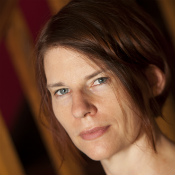 A writer’s writer. I’ve never liked, or trusted, that moniker. But James Salter was a writers’ writer to me in that he was my writer parents’ writer long before I was a writer. He was awe instilling, distant, on an upper shelf and out of reach. Then one of them, I think it was my mother, encouraged me to read Light Years. To me, it’s the divorce novel the way Dylan’s Blood on the Tracks is the divorce album. And those opening lines! Their disorienting strangeness, those fabulously weird, rhyming verbs (we dash the black river and flash the wide river—WHAT and holy WOW), the way all the domestic turbulence of the novel to come is there in the broken water, the cracking wind, the blurring, brackish river. Light Years lodged itself deep in the archaeological layers of my reading self. Years later, when I became a writer, there it was, waiting for me with its eerie, wild grammar that said look at what’s possible.
A writer’s writer. I’ve never liked, or trusted, that moniker. But James Salter was a writers’ writer to me in that he was my writer parents’ writer long before I was a writer. He was awe instilling, distant, on an upper shelf and out of reach. Then one of them, I think it was my mother, encouraged me to read Light Years. To me, it’s the divorce novel the way Dylan’s Blood on the Tracks is the divorce album. And those opening lines! Their disorienting strangeness, those fabulously weird, rhyming verbs (we dash the black river and flash the wide river—WHAT and holy WOW), the way all the domestic turbulence of the novel to come is there in the broken water, the cracking wind, the blurring, brackish river. Light Years lodged itself deep in the archaeological layers of my reading self. Years later, when I became a writer, there it was, waiting for me with its eerie, wild grammar that said look at what’s possible.
Maud Casey is a fiction writer living in Washington, D.C.
It’s hard now to think of all those places and nights, Nicola’s like a railway car, deep and gleaming, the crowd at the Un, Deux, Trois, Billy’s. Unknown brilliant faces jammed at the bar. The dark dramatic eye that blazes for a moment and disappears . . .
— from “American Express”
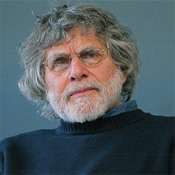
In the summers of the mid 1980s I was helping to co-direct with Nick Delbanco the Bennington Summer Writing Workshops. A few old friends of mine were spending some time at Yaddo, the relatively close-by former estate of an American railroad mogul turned into an elegant artists colony where I had spent some wonderful months myself not long before.
Yaddo was a place where you learned how to manage your time. A wonderful chef prepared delicious meals for all the residents. In the age of the pay phone, you kept your calls to a minimum. The only thing you had to do on your own was your laundry. So most of your time there became writing time and reading time. With, of course, as was the way for many of us then, some drinking time and other pleasurable activities.
My friends there introduced me to a few writers. One of them was James Salter, one or two of whose early stories I had read and much admired. He was staying in the same room, a large space just above the estate’s carriage house, where I had stayed. We talked a little about how pleasant it was to have light pour in from windows on three sides of the room, and that the space seemed to inspire fluid work. John Cheever had stayed in that same room many years before. It was a good place to work.
Yes, it was, Salter said. He had just finished a story called “American Express”, something he thought might be a pretty good piece of work. I asked him if he might like to come over to Bennington and read it to the participants in the summer workshop. Imagine my dismay when he looked at me and said, in that distinctive slightly nasal New York City accent of his, “Oh, well, that sounds interesting. I’ve never read in public before . . . ”
(There’d been one earlier, aborted attempt at a reading, he explained, at a small New England college to which he had been invited, but a snowstorm wiped out the event).
And so he drove over the next week. In shirtsleeves that muggy evening he took to the podium of the college’s auditorium, a large amphitheater-like space that did not show its best qualities in mid-summer. But after listening to the opening lines of that new story of his, not many of us assembled there, ancient and middle-aged writers and novices alike, paid much attention to our surroundings.
It’s hard now to think of all those places and nights, Nicola’s like a railway car, deep and gleaming, the crowd at the Un, Deux, Trois, Billy’s. Unknown brilliant faces jammed at the bar. The dark dramatic eye that blazes for a moment and disappears . . .
He took us places we had never been before, he took us places we had looked at before but never really seen, with lines jammed with just the right nouns, he prepared us, as a matador prepares a bull for the kill, for the exact verbs that would carry entire paragraphs, entire passages, the entire story into a beyond where all of us lived together in a momentary clarity, the paradise of language to which all writers aspire to ascend and in which few reside.
Alan Cheuse‘s latest work of fiction is Prayers for the Living.
The air was crossed with voices, shouts, the scrape of skates. It was possible to go further out than anyone could remember; the ice was thick for half a mile from shore. People had lit bonfires and stood around them on the bank, warming themselves, still in their skates. A few dogs tried to run on the ice.
Nedra had not gone with them. She was in the kitchen. A fire burned. She had poured a dish of warm milk, and the puppy was drinking with brief, clumsy laps, the milk flashing in his mouth. He was tan, the color of a fox, with white underneath. His movements were hopelessly crude.
— from Light Years
 The movement of this passage is arresting—the voices cross the air, the skates cross ice, Viri, the husband, crosses the lake to farther out than he’s ever been. Dogs scramble to move hardly at all. In so few sentences Salter takes us through the depth of the ice and up into the sky.
The movement of this passage is arresting—the voices cross the air, the skates cross ice, Viri, the husband, crosses the lake to farther out than he’s ever been. Dogs scramble to move hardly at all. In so few sentences Salter takes us through the depth of the ice and up into the sky.
Salter moves from Viri on the pond to Nedra in the kitchen seamlessly, binding their existences with matching fires, matching dogs, the milk flashing in the puppy’s mouth like the flash of skates. The puppy is the color of an animal that belongs in the woods around the ice. This early in the book, Viri and Nedra appear deeply solid, and Salter shows their intimacy even now, when they’re apart.
Salter could make anything beautiful, and he did, again and again.
Lydia Conklin is a fiction and graphic fiction writer who teaches at Emory University.
As to what he was made of, what rare element, perhaps in the end I’ll know, perhaps he’ll tell me in the obscurity, the shade where he has gone. We will stroll aimlessly, as by rivers in France beneath the trees with their huge flat leaves, or along the Rhine, freed from desire and time, like patients in some hospital, never to leave; he’ll tell me what he remembers and I will finally understand.
— from Burning the Days
 This passage, from the West Point chapter in Salter’s memoir Burning the Days, is about Kelton Farris, an old Army friend. And while it feels like a crime to leave unmentioned, here, so many other favorite quotes—notably, the culmination of A Sport and a Pastime’s luminous opening: “I am thirty, I am thirty-four—the years turn dry as leaves”—I think it gets at what distinguishes James Salter beyond the beauty of his sentences (which are beautiful, if part of the larger whole): his desire to understand the elemental aspects of the people whose lives, for nearly a century, intersected with his own.
This passage, from the West Point chapter in Salter’s memoir Burning the Days, is about Kelton Farris, an old Army friend. And while it feels like a crime to leave unmentioned, here, so many other favorite quotes—notably, the culmination of A Sport and a Pastime’s luminous opening: “I am thirty, I am thirty-four—the years turn dry as leaves”—I think it gets at what distinguishes James Salter beyond the beauty of his sentences (which are beautiful, if part of the larger whole): his desire to understand the elemental aspects of the people whose lives, for nearly a century, intersected with his own.
Knowing these individuals wasn’t enough; nor was writing about them. It’s a complication he spent his career exploring: a single human lifespan is always insufficient because our desire to understand that rarest of elements—intimacy; its origins—requires more time than any of us is allowed.
Instead, in this passage, Salter imagines the opposite: what would it be like to set the complication aside? For him, understanding means the opportunity to ask and listen without interruption, to stroll alongside the people you care about most. A hopeful, generous sentiment; it implies that our dearest friends—and dearest writers—are never as far off as we might think.
Timothy Denevi‘s first book is Hyper; he’s a faculty member in the MFA program at George Mason University, where he teaches nonfiction.
We are fleeing through the towns. Cesson, a pale station with an old clock. Rivers with barges. We roar through another place, the people on the quai standing still as cows. Tunnels, now, which press one’s ears. It’s as if a huge deck of images is being shuffled. After this will come a trick. Silence, please. The train itself begins to slow a little as if obeying. Across from me the girl has fallen asleep. She has a narrow mouth, cast down at the corners, weighted there by the sourness of knowledge. Her face turned towards the sun. She stirs. Her hand slips down; the palm comes to rest on her stomach which is already like a Rubens. Now her eyes open without warning. She sees me. She looks away, out the window. Both hands are crossed on her stomach now. Her eyes close once more. We are leaning into curves.
— from A Sport and a Pastime
 This paragraph on the third page of Salter’s novel is pure magic to me. The setting is classically mundane, but already an indelible sensuality is building and preparing us for the frank scenes of intimacy that come later. With Salter, however, there is always a third level of reading—what rises above the page like song, a seductive composition of sound and pacing. After the girl closes her eyes again, there is a silent beat. Then the reader is thrown into the movement of the paragraph’s last sentence. We are leaning into curves. It’s not only that Salter wrote about sex so well: his sentences were sexy. In an interview with The Paris Review, Salter declared that, for him, “the major axis of life is a sexual one.” To read and love his work is to become familiar with this truth: that sexual feeling is not only desire for another individual; it can also be experienced as an irrepressible response to the smallest details of the physical world, the body and mind together affirming life.
This paragraph on the third page of Salter’s novel is pure magic to me. The setting is classically mundane, but already an indelible sensuality is building and preparing us for the frank scenes of intimacy that come later. With Salter, however, there is always a third level of reading—what rises above the page like song, a seductive composition of sound and pacing. After the girl closes her eyes again, there is a silent beat. Then the reader is thrown into the movement of the paragraph’s last sentence. We are leaning into curves. It’s not only that Salter wrote about sex so well: his sentences were sexy. In an interview with The Paris Review, Salter declared that, for him, “the major axis of life is a sexual one.” To read and love his work is to become familiar with this truth: that sexual feeling is not only desire for another individual; it can also be experienced as an irrepressible response to the smallest details of the physical world, the body and mind together affirming life.
Samar Farah Fitzgerald teaches creative writing at James Madison University.
Great lovers lie in hell, the poet says. Even now, long afterwards, I cannot destroy the images. They remain within me like the yearnings of an addict. I need only hear certain words, see certain gestures, and my thoughts begin to tumble. I despise myself for thinking of her. Even if she were dead, I would feel the same. Her existence blackens my life.
— from A Sport and A Pastime
 There’s a theory that I think holds true—that there’s two kinds of writers in the world. Those who started as scholars, who held books in reverence and spend their writing lives dutifully trying to scale the same white marble heights as the masters of their junior high school library. And those who got into books because they were looking for the dirty bits. Those are the writers who can’t help themselves, who can write as prettily as the first kind, but also always write true, write with a bite, write the odd things, the scary things, the things most people only mutter to themselves under their breath or come back to, with flashes of shame and pride, in their memories. I don’t presume to claim Salter in the second camp—I don’t know enough about his history to say why he started writing. But he writes like that. And I first picked up A Sport and a Pastime because I love the dirty bits of books—I’ve been searching for them since I learned how to read. What is so satisfying about A Sport and a Pastime is how real the sex reads—how the disreputable love affair between an overgrown expat and a naive French girl contains the scenes, the sentiments, the secret conclusions I’ve found in my own life. That’s the mastery of Salter, the magic of the book, and why I come back to it again and again, even though I now know where the dirty bits are.
There’s a theory that I think holds true—that there’s two kinds of writers in the world. Those who started as scholars, who held books in reverence and spend their writing lives dutifully trying to scale the same white marble heights as the masters of their junior high school library. And those who got into books because they were looking for the dirty bits. Those are the writers who can’t help themselves, who can write as prettily as the first kind, but also always write true, write with a bite, write the odd things, the scary things, the things most people only mutter to themselves under their breath or come back to, with flashes of shame and pride, in their memories. I don’t presume to claim Salter in the second camp—I don’t know enough about his history to say why he started writing. But he writes like that. And I first picked up A Sport and a Pastime because I love the dirty bits of books—I’ve been searching for them since I learned how to read. What is so satisfying about A Sport and a Pastime is how real the sex reads—how the disreputable love affair between an overgrown expat and a naive French girl contains the scenes, the sentiments, the secret conclusions I’ve found in my own life. That’s the mastery of Salter, the magic of the book, and why I come back to it again and again, even though I now know where the dirty bits are.
Kaitlyn Greenidge lives in Brooklyn and her debut novel, We Love You, Charlie Freeman, will be released by Algonquin Press in June, 2016.
Morning. She lies face down, warm still from sleep. Her arms are up on either side of her head, the elbows bent. Dean is on top of her, encircling, in the early light, and they are fucking like weight lifters. He pauses at last. He leans over to admire her, she does not see him. Hair covers her cheek. Her skin seems very white. He kisses her side and then, without force, as one stirs a favorite mare, begins again. She comes to life with a soft, exhausted sound, like someone saved from drowning.
— from A Sport and a Pastime
 Sex is difficult to write about without looking gross or embarrassing, but Salter is a Jedi master at surprising the reader so much she forgets to be embarrassed. Fucking like weight lifters! Ha! In a similar way, the sentences are so crystalline that you overlook the knotty and constantly transfiguring metaphors: they are weight lifters, no, Anne-Marie is a mare, no, she’s a woman whom Phillip is saving from drowning. The magic reverberates through the book as a whole: it is so splendidly, breathtakingly written that the reader forgets that it’s a long act of extremely detailed imaginary erotic voyeurism, fan fiction of someone else’s love affair. James Salter’s astonishing greatness was in his ability to run risks that no other writer could run without slipping and falling and creating something sentimental or false; Salter never once slipped.
Sex is difficult to write about without looking gross or embarrassing, but Salter is a Jedi master at surprising the reader so much she forgets to be embarrassed. Fucking like weight lifters! Ha! In a similar way, the sentences are so crystalline that you overlook the knotty and constantly transfiguring metaphors: they are weight lifters, no, Anne-Marie is a mare, no, she’s a woman whom Phillip is saving from drowning. The magic reverberates through the book as a whole: it is so splendidly, breathtakingly written that the reader forgets that it’s a long act of extremely detailed imaginary erotic voyeurism, fan fiction of someone else’s love affair. James Salter’s astonishing greatness was in his ability to run risks that no other writer could run without slipping and falling and creating something sentimental or false; Salter never once slipped.
Lauren Groff is the author of Fates and Furies, to be published September 15th by Riverhead.
Time was limitless, mornings, nights, all of life ahead. He often thought about death but usually in pity for an animal or fish or seeing the dying grass in the fall or the monarch butterflies clinging to milkweed and feeding for the great funeral flight. Were they aware of it somehow, the strength it would take, the heroic strength? He thought about death, but he had never been able to imagine it, the unbeing while all else still existed.
— from All That Is
 When James Salter’s first novel in thirty-four years was slated to come out, I could hardly wait. Anticipation has a way of ruining even the best things. But not so with Salter. Every sentence of All That Is is underlineable. Philip Bowman, “not exactly a hero,” vibrates on the page. Here at the end of the book, Salter’s captured Bowman once again with his brutally sharp power of observation. “Time was limitless, mornings, nights, all of life ahead” is a sentence only Salter could write— though as always it inspires me to think of the boundless ways fiction can be written.
When James Salter’s first novel in thirty-four years was slated to come out, I could hardly wait. Anticipation has a way of ruining even the best things. But not so with Salter. Every sentence of All That Is is underlineable. Philip Bowman, “not exactly a hero,” vibrates on the page. Here at the end of the book, Salter’s captured Bowman once again with his brutally sharp power of observation. “Time was limitless, mornings, nights, all of life ahead” is a sentence only Salter could write— though as always it inspires me to think of the boundless ways fiction can be written.
And then that next sentence—in total contrast—“He often thought about death […]” I’m breathless by the time the list of dying creatures begins with the general and then moves to the immaculately particular, “[…] the monarch butterflies clinging to milkweed and feeding for the great funeral flight.” Had I ever thought of the heroic strength it would take to die before I read that next perfect question?
In 2013, around the time All That Is was published, Salter did an interview on NPR. When asked if he thought he’d be an influence for years to come, Salter—just as succinct and eloquent in speech as on the page—replied, “It would be vanity to answer that question. I think if you have anything that’s read 20 years after your death, you’ve accomplished something considerable. Beyond that, it’s impossible to say.”
But I think we all know how we’d answer that question—or how we’d articulate our hope, at least, for generations to come, to love him as we’ve loved him.
Elizabeth Word Gutting is a writer in Washington, D.C. and the program director of the PEN/Faulkner Foundation.
The lights are on everywhere: a vast, illuminated house. Dead flies the size of beans lie behind the velvet curtains, the wallpaper has corner bulges, the window glass distorts. It is an aviary they live in, a honeycomb. The roofs are thick slate, the rooms are like shops. Within, if one listens, is everything: water, faint voices, the slow, measured rending of grain.
— from Light Years
 This passage is from Light Years, my favorite of Salter’s novels. The book is in many ways an elegy for lost love, an anguished look back at a marriage that ends painfully. The house where Nedra and Viri once lived is, to Salter, a sacred site. Every detail matters. His prose—lapidary, incantatory—is more than beautiful; it is purposeful. Its goal, always, is to recreate with reverence and precision exactly what it was to be alive on earth at a particular time, the singular texture of a moment that will never be repeated and will soon be forgotten, lost to us all. Salter writes to bear witness to felt life in all its terrible beauty, to record, as accurately as art can do, exactly how it was.
This passage is from Light Years, my favorite of Salter’s novels. The book is in many ways an elegy for lost love, an anguished look back at a marriage that ends painfully. The house where Nedra and Viri once lived is, to Salter, a sacred site. Every detail matters. His prose—lapidary, incantatory—is more than beautiful; it is purposeful. Its goal, always, is to recreate with reverence and precision exactly what it was to be alive on earth at a particular time, the singular texture of a moment that will never be repeated and will soon be forgotten, lost to us all. Salter writes to bear witness to felt life in all its terrible beauty, to record, as accurately as art can do, exactly how it was.
Jennifer Haigh’s fifth novel, Heat and Light, will be published by Ecco in May 2016.
I have loved thee. I was as it were a child . . . The poets, writers, the sages and voices of their time, they are a chorus, the anthem they share is the same: the great and small are joined, the beautiful lives, the other dies, and all is foolish except honor, love, and what little is known by the heart.
— from Burning the Days
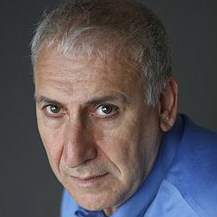 This is the last paragraph of James Salter’s chapter about Irwin Shaw, “Forgotten Kings,” in his memoir Burning the Days. Shaw was the first writer of distinction Salter ever met—a father figure, a friend, an unlikely Virgilian guide. The passage begins with a quotation from Byron, then establishes one of the main premises of Salter’s work, which is that “Life passes into pages if it passes into anything at all.” Everything in Salter’s work is drawn from life—not just his memoir but also his stories and novels, two of which are imperishable. He is a writer of luminous moments or scenes. His prose, a form of poetry by other means, shimmers with a world of beautiful surfaces, but it is informed by deep values and untarnished virtues, with honor, love and what we know by heart, of the heart.
This is the last paragraph of James Salter’s chapter about Irwin Shaw, “Forgotten Kings,” in his memoir Burning the Days. Shaw was the first writer of distinction Salter ever met—a father figure, a friend, an unlikely Virgilian guide. The passage begins with a quotation from Byron, then establishes one of the main premises of Salter’s work, which is that “Life passes into pages if it passes into anything at all.” Everything in Salter’s work is drawn from life—not just his memoir but also his stories and novels, two of which are imperishable. He is a writer of luminous moments or scenes. His prose, a form of poetry by other means, shimmers with a world of beautiful surfaces, but it is informed by deep values and untarnished virtues, with honor, love and what we know by heart, of the heart.
Edward Hirsch has published nine books of poems, including Gabriel: A Poem, a book-length elegy, and five books of prose, most recently A Poet’s Glossary, a full compendium of poetic terms.
He was sitting with Susanna, a family friend. Finally, they heard Marit on the stairs, and she came into the room. She was wearing a red silk dress in which she had always been seductive, with her loose breasts and sleek, dark hair. In the white wire baskets in her closet were stacks of folded clothes, underwear, sport things, nightgowns, the shoes jumbled beneath on the floor. Things she would never again need.
— from “Last Night”
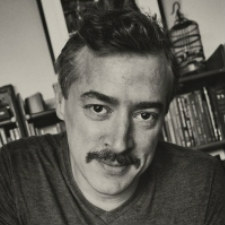 This is most of the second paragraph of the story “Last Night,” from a collection of the same name. On the immediate surface, it gives us the story of a husband and wife on the last night of the wife’s life (in the company of a supportive friend to the couple), during which the husband is to euthanize his wife, at the wife’s wishes. And this is what the story seems to be for the first eleven of the its thirteen pages. Then things takes a salacious turn, and the reader learns that the husband and the family friend are conducting an affair. Then there is an even more horrible turn the next morning when the husband and Susanna (who has stayed the night with the husband, since they can now be together without worry of being caught by the wife) learn that the drug hasn’t been administered correctly and the wife has survived. The title of the story no longer refers to the wife’s last night alive, but, instead, to what the husband and his mistress have revealed about themselves last night—that is, the night before. This is one of the great things about Salter’s writing, so seemingly simple on the surface but so full of implication, which cannot be fully anticipated until Salter decides to reveal the manifestation of that implication. It creates an inescapable tension, which always leaves the reader somewhere unexpected and unavoidable.
This is most of the second paragraph of the story “Last Night,” from a collection of the same name. On the immediate surface, it gives us the story of a husband and wife on the last night of the wife’s life (in the company of a supportive friend to the couple), during which the husband is to euthanize his wife, at the wife’s wishes. And this is what the story seems to be for the first eleven of the its thirteen pages. Then things takes a salacious turn, and the reader learns that the husband and the family friend are conducting an affair. Then there is an even more horrible turn the next morning when the husband and Susanna (who has stayed the night with the husband, since they can now be together without worry of being caught by the wife) learn that the drug hasn’t been administered correctly and the wife has survived. The title of the story no longer refers to the wife’s last night alive, but, instead, to what the husband and his mistress have revealed about themselves last night—that is, the night before. This is one of the great things about Salter’s writing, so seemingly simple on the surface but so full of implication, which cannot be fully anticipated until Salter decides to reveal the manifestation of that implication. It creates an inescapable tension, which always leaves the reader somewhere unexpected and unavoidable.
Michael Kimball is the author of eight books, most recently The One-Hour MFA.
As for Anne-Marie, she lives in Troyes now, or did. She is married. I suppose there are children. They walk together on Sundays, the sunlight falling upon them. They visit friends, talk, go home in the evening, deep in the life we all agree is so greatly to be desired.
— from A Sport and a Pastime
 Not knowing what else to do when I learned James Salter had died, I pulled A Sport and a Pastime from its place on my shelf and began reading with the impression that I knew it well. I remembered it to be highly erotic, but it is not. Or, at least, I no longer find it so. Instead, I discovered a novel about the acute desire to make permanent what cannot be, about the brief, sad, and callow belief that sensual pleasure can somehow prevent the inevitable. The book ends with the short paragraph above, underscoring the bitter loneliness of a shy and cloistered narrator whose sensual world is condemned to fantasy. There exists within these last lines both the presumed sadness of a conventional life detached from the desperate passion of youth, and, sadder still, the limits of a lonely imagination. Incapable of seeing Anne-Marie happy without her dead lover, the narrator concludes his story with a drop of acid disdain. We are reminded then that the true tragedy of A Sport and a Pastime lies in the empty life of a superb voyeur incapable of action. In the end, Salter does here what he does so masterfully in all of his work: with tenderness and with precision, he indicts the reader.
Not knowing what else to do when I learned James Salter had died, I pulled A Sport and a Pastime from its place on my shelf and began reading with the impression that I knew it well. I remembered it to be highly erotic, but it is not. Or, at least, I no longer find it so. Instead, I discovered a novel about the acute desire to make permanent what cannot be, about the brief, sad, and callow belief that sensual pleasure can somehow prevent the inevitable. The book ends with the short paragraph above, underscoring the bitter loneliness of a shy and cloistered narrator whose sensual world is condemned to fantasy. There exists within these last lines both the presumed sadness of a conventional life detached from the desperate passion of youth, and, sadder still, the limits of a lonely imagination. Incapable of seeing Anne-Marie happy without her dead lover, the narrator concludes his story with a drop of acid disdain. We are reminded then that the true tragedy of A Sport and a Pastime lies in the empty life of a superb voyeur incapable of action. In the end, Salter does here what he does so masterfully in all of his work: with tenderness and with precision, he indicts the reader.
Alexander Maksik is the author of the novels You Deserve Nothing and A Marker to Measure Drift.
Life is weather. Life is meals. Lunches on a blue-checked cloth on which salt has spilled. The smell of tobacco. Brie, yellow apples, wood-handled knives.
— from Light Years
 I suspect that before many of us ever read James Salter’s books we’d heard of him. Likely he was spoken of reverentially, in hushed tones. Perhaps, like me, you had friends or acquaintances who were near Talmudic in their ardency and appreciation for his oeuvre. If so, they probably referred to him as a writer’s writer and were equally proud and resentful of the designation. They surely would have mentioned his conspicuously careful attention to craft, and they definitely would have highlighted the beauty of his sentences.
I suspect that before many of us ever read James Salter’s books we’d heard of him. Likely he was spoken of reverentially, in hushed tones. Perhaps, like me, you had friends or acquaintances who were near Talmudic in their ardency and appreciation for his oeuvre. If so, they probably referred to him as a writer’s writer and were equally proud and resentful of the designation. They surely would have mentioned his conspicuously careful attention to craft, and they definitely would have highlighted the beauty of his sentences.
When I finally read Salter, I understood all of this to be true and soon found myself on the other end of things, proselytizing, uttering these same sentiments to the unconverted. Like one of my graduate students, who politely listened to my spiel and then said, “Well, what about his sentences? What are they like?” Almost without thinking I recited the passage I picked here from Light Years, a book so full of guitar-solo sentences that it doesn’t seem fair, let alone possible, that they came from the mind of one person. While there are hundreds of other examples I could have selected, this is the one that has always stayed with me. It has the fragmentary eloquence and singular attention to diverse sensory detail and image of so many Salter sentences, as well as the beguiling insight. I remember reading the first two sentences of this passage for the first time and thinking That’s a weird thing to write, and then moments later feeling with the absolute certainty of a drug-high epiphany that life is weather, and life is meals. I could feel the ache and pleasure of time passing as I re-read these lines, and I was aware, once again, of my future death. This was not as unpleasant a feeling as it sounds.
Andrew Malan Milward is the author of the story collection I Was a Revolutionary, which will be published next month by HarperCollins.
Marit had prepared herself. She had made up her eyes and put on an ivory satin nightgown, low in back. It was the gown she would be wearing in the next world. She had made an effort to believe in an afterworld. The crossing was by boat, something the ancients knew with certainty. Over her collarbones lay strands of a silver necklace. She was weary. The wine had had an effect, but she was not calm.
— from “Last Night”
 I once saw James Salter reduce a room full of people to tears reading this story aloud. This was ten years ago, in Iowa City, in the reading room at the Writers’ Workshop, by the big windows that look out over the river, the place full of fledgling storywriters and poets. The story is done simply—only the essentials, with none of the flamboyance of the novels, none of the magic of, say, the first page of Light Years. In the story a woman is sick with a terminal illness. She has planned to die at home. Her husband will do the injection. “It was in the uterus and had travelled from there to the lungs. In the end, she had accepted it.” This is the way Salter handles the sickness, the diagnoses, the acceptance of death. Not a word or breath or thought wasted. Later on there is a good last meal, a $575 bottle of Cheval Blanc, sexual transgression involving a woman far too young: it is a James Salter story.
I once saw James Salter reduce a room full of people to tears reading this story aloud. This was ten years ago, in Iowa City, in the reading room at the Writers’ Workshop, by the big windows that look out over the river, the place full of fledgling storywriters and poets. The story is done simply—only the essentials, with none of the flamboyance of the novels, none of the magic of, say, the first page of Light Years. In the story a woman is sick with a terminal illness. She has planned to die at home. Her husband will do the injection. “It was in the uterus and had travelled from there to the lungs. In the end, she had accepted it.” This is the way Salter handles the sickness, the diagnoses, the acceptance of death. Not a word or breath or thought wasted. Later on there is a good last meal, a $575 bottle of Cheval Blanc, sexual transgression involving a woman far too young: it is a James Salter story.
Also, the story is a horror. Anyone who knows love knows this is so. “Well, darling,” Salter writes when Marit sees her husband standing in the doorway to their bedroom holding the needle. “There were some photographs she had arranged around her on the bed.” This is the part of the story I remember. A husband having to put his wife down. Here is a lesson in economy of thought, in the crucial human detail, in the transcendent capacities of fiction. This is also the part of the story when everyone in the room that night in Iowa began to weep. Who could blame them? Salter had the room in his palm. I have never seen anyone come even close to being as good. “She had embarked. My God, he thought, my God . . . Now he had slipped her, as in a burial at sea, beneath the flow of time.”
Stuart Nadler is the author of The Book of Life, Wise Men, and The Inseparables, which will be published next summer.
But knowledge doesn’t protect one. Life is contemptuous of knowledge; it forces it to sit in the anterooms, to wait outside. Passion, energy, lies—these are what life admires.
— from Light Years
 For me, James Salter was always a problem. He lured me in with his fluid descriptions of adultery, marriage, and mistakes. And then he slapped me awake, with his very male perspective of sex and romance. He was right about so much I didn’t want to understand—the perils of domestic life, the emptiness of convention, and the agency of betrayal. He specialized in the eroticism of subterfuge.
For me, James Salter was always a problem. He lured me in with his fluid descriptions of adultery, marriage, and mistakes. And then he slapped me awake, with his very male perspective of sex and romance. He was right about so much I didn’t want to understand—the perils of domestic life, the emptiness of convention, and the agency of betrayal. He specialized in the eroticism of subterfuge.
But his language was like nepenthe. Even when he wrote articles I didn’t want to read, like “Younger Women, Older Men,” I read them anyway. His sentences winked at me like diamonds. I couldn’t leave them alone.
Most of all, I admired his use of opposites. His work was riddled with them. The forbidden lover and the reliable wife, the public façade and the secret reality. Death. Life. He wrote:
But knowledge doesn’t protect one. Life is contemptuous of knowledge; it forces it to sit in the anterooms, to wait outside. Passion, energy, lies—these are what life admires.
The idea that “knowledge doesn’t protect one . . . ” is in contrast with the usual belief that knowledge is power. Salter said that knowledge is, in fact, the opposite of power. Knowledge is only information, an extension of rationality. And what is rationality in real life? Knowledge is a mirage, an illusion, an inconvenient truth—in a world governed by “passion, energy, lies.” Salter’s world.
Lisa Page directs the creative writing program at the George Washington University and is also a member of the Yale Writing Conference resident faculty. She lives outside Washington, D.C.
It is in the blizzards of New England that I see her, the snow, the old houses hidden in it, warm window lights. I drive through her town in winter, oak woods, pale sky, a stone boathouse, memories. I think of her mother, her mother’s life, when she brought her children east to live, or was it that her mother stayed in California and sent them to an uncle and aunt in West Newton? No matter, there is the pond, gray and ice-coated, and the railroad bridge that she passed on walks, in her girlhood, in her youth and perfection long ago.
— from Burning the Days
 This passage is from the memoir Burning the Days. It describes a woman, now deceased, whom the author loved and let slip away in his youth.
This passage is from the memoir Burning the Days. It describes a woman, now deceased, whom the author loved and let slip away in his youth.
Love, longing, loss, and the passage of time are the great subjects of literature, and no one writes about them with the perception and beauty of James Salter. For me, his books have been transformative, in that they’ve made me look at my own life, its path, and my place in the world in a different way. The obits said that Salter never achieved bestseller status, as if that were some sort of tragedy. In fact, his life as a writer was a complete triumph. He did what many hope for and so few achieve: he became immortal through his art.
George Pelecanos is a novelist and screenwriter.
Walter Such was a translator. He liked to write with a green fountain pen that he had a habit of raising in the air slightly after each sentence, almost as if his hand were a mechanical device. He could recite lines of Blok in Russian and then give Rilke’s translation of them in German, pointing out their beauty. He was a sociable but also sometimes prickly man, who stuttered a little at first and who lived with his wife in a manner they liked. But Marit, his wife, was ill.
He was sitting with Susanna, a family friend. Finally, they heard Marit on the stairs, and she came into the room. She was wearing a red silk dress in which she had always been seductive, with her loose breasts and sleek, dark hair.
— from “Last Night”
 One of the perks of teaching creative writing is getting to introduce your students to your favorite writers. And, when it comes to teaching, there’s nothing quite as exciting as watching a student get excited about one of your favorites. James Salter is a writer to whom I keep returning in my teaching. All teachers of fiction have stories that, for them, exemplify everything that good fiction should be. For me, one of those stories is Salter’s “Last Night.” The passage above is from the story’s beginning.
One of the perks of teaching creative writing is getting to introduce your students to your favorite writers. And, when it comes to teaching, there’s nothing quite as exciting as watching a student get excited about one of your favorites. James Salter is a writer to whom I keep returning in my teaching. All teachers of fiction have stories that, for them, exemplify everything that good fiction should be. For me, one of those stories is Salter’s “Last Night.” The passage above is from the story’s beginning.
“Last Night” is that rare story that makes the reader’s outright surprise work to the story’s advantage. The story is marked by several big surprises, the first of which I’m going to spoil for you. Not only is Marit ill, she’s dying, and, on this night, at her request, Walter will kill her. (Don’t worry, two more surprises await you.)
What’s so staggering about “Last Night,” and what makes it so teachable, is the way in which Salter foreshadows all three surprises in the story’s opening paragraphs. No imprecision. No dross. I would put Salter at the top of the list, along with Amy Hempel and Mary Robison, of masters of the every-detail-matters-and-every-word-counts school of American short fiction. (A great companion piece to Salter’s “Last Night,” for the record, is Robison’s “Yours.”)
In the opening of “Last Night,” everything matters. The confidence with which Walter commands that pen “as if his hand were a mechanical device” contrasts hauntingly with his inability to keep the lethal injection in his hand steady later in the story. “Last Night” opens with Walter and Susanna sitting together, which is telling, then hearing Marit on the stairs. Watch those stairs. Sometimes, what looks like a throwaway detail changes a story’s course when it’s echoed twelve pages later. This particular staircase is the Chekhov’s gun of all staircases. Plus, please note the beautiful defamiliarization at work. A sick character is presented as beautiful and “seductive,” though, of course, this portrait also gives the reader a taste of where Walter’s head is at on this night, and that matters too. Then, of course, there’s the fact that Walter is a translator, which is perfect, seeing as Walter’s calling, now, is to translate his wife, not with a pen, but with a needle, from life into death.
“Last Night” represents a kind of Grand Unification Theory of storytelling in which even a story’s smallest part contributes to the whole. It’s all there, right in the story’s opening lines. One need only read the story carefully to see the moving parts. When I lead students through “Last Night,” they’re awed by all that’s there, by how much they’ve missed on their first reading, by how much work goes into the writing of such a story, and by how much work must then be expected of the reader.
David James Poissant is the author of The Heaven of Animals: Stories. He teaches in the MFA program at the University of Central Florida.
And he reads to them, as he does every night, as if watering them, as if turning the earth at their feet . . . He wants his children to have an old life and a new life, a life that is indivisible from all lives past, that grows from them, exceeds them, and another that is original, pure, free, that is beyond the prejudice which protects us, the habit which gives us shape. He wants them to know both degradation and sainthood, the one without humiliation, the other without ignorance. He is preparing them for this voyage.
[ . . . ] ‘How I love you, Franca,’ Nedra said. Of them all, it was the true love. Of them all, it was the best. That other, that sumptuous love which made one drunk, which one longed for, envied, believed in, that was not life. It was what life was seeking; it was a suspension of life. But to be close to a child, for whom one spent everything, whose life was protected and nourished by one’s own, to have that child beside one, at peace, was the real, the deepest, the only joy.
— from Light Years
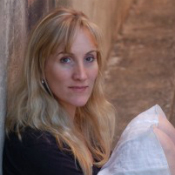 So much is said about Salter’s writing on marriage, sex, and infidelity; not as much, perhaps, about his writing on children and parenting. But I find these excerpts from Light Years among the most beautiful and moving passages on parenting in the English language. I don’t mean parenting as an act—what one does for one’s children—but rather the lived experience of being a mother or father, the raw feelings: ache, joy, hope, yearning, despair, pride. In the first passage, Viri articulates his fierce desire for his daughters to thrive; the hope they will stay attached to their roots but also become individuals, “original, pure, [and] free”; and the knowledge that their passage into adulthood will necessarily involve failure (degradation, though without humiliation). Implicit is the recognition that a parent can do very little to bring this about, but that reading aloud to one’s children—feeding their imaginations, layering their souls with language—may in fact be one of the best ways to prepare them for the voyage.
So much is said about Salter’s writing on marriage, sex, and infidelity; not as much, perhaps, about his writing on children and parenting. But I find these excerpts from Light Years among the most beautiful and moving passages on parenting in the English language. I don’t mean parenting as an act—what one does for one’s children—but rather the lived experience of being a mother or father, the raw feelings: ache, joy, hope, yearning, despair, pride. In the first passage, Viri articulates his fierce desire for his daughters to thrive; the hope they will stay attached to their roots but also become individuals, “original, pure, [and] free”; and the knowledge that their passage into adulthood will necessarily involve failure (degradation, though without humiliation). Implicit is the recognition that a parent can do very little to bring this about, but that reading aloud to one’s children—feeding their imaginations, layering their souls with language—may in fact be one of the best ways to prepare them for the voyage.
The second passage comes near the end of the novel (and Nedra’s life). Nedra and her now-grown daughter Franca lie in the tall dune grass beneath the “holy sun.” Here, daughter reads aloud to mother from Troyat’s life of Tolstoy, “a book like the Bible, so rich in events, in sorrow, in partings . . . the chapters became one’s flesh, one’s own being; the trials washed one clean.” Nedra recalls how, long ago, Viri read to their daughters—and then the sudden declaration, How I love you, the reflection that a mother’s love is, after the fading of other loves, the lasting passion, the real and deepest joy.
When my four children were young, I read to them aloud each night. I felt, then, like Viri—that I was in some way watering them. Hoping and praying the words and sentences, and the emotions they contained, would enter and fertilize their souls. Now they’re teenagers and leaving the house, one by one, and I find I’m entering Nedra’s space, feeling that deep sense of joy when I’m having lunch or doing yoga or taking a run with one of my daughters; having her beside me, fully herself, individual, but still a part of me. The best stories give us words for the deepest things we feel—I’m grateful to Salter for these words.
Jamie Quatro is the author of the story collection I Want to Show You More.
Nadine was staring into the water.
“There are nothing but eels down there,” she said.
He followed her gaze. The surface was impenetrable. He tried to find a single, black shadow betrayed by its grace.
— from “The Destruction of the Goetheanum”
 It’s easy to excerpt Salter, to find a perfect sentence or a shattering passage, but excerpting him also misses something of what it feels like to read him. Whatever is happening in a Salter story, whatever is being described, whatever conversation is being detailed, there is a feeling that a magic word is about to be spoken like a key clicking into a keyhole you didn’t know was there.
It’s easy to excerpt Salter, to find a perfect sentence or a shattering passage, but excerpting him also misses something of what it feels like to read him. Whatever is happening in a Salter story, whatever is being described, whatever conversation is being detailed, there is a feeling that a magic word is about to be spoken like a key clicking into a keyhole you didn’t know was there.
The moment above happens in the middle of a story, in the middle of what seems to be a fairly ordinary conversation. The main character does not see the eels, but, somehow, those graceful black shadows appear, even in their absence.
Rob Roensch is the author of the short story collection The Wild Flowers of Baltimore.
It seemed he was the only listener to an infinite sea of cries.
— from “Akhnilo”
 James Salter’s story “Akhnilo”—the word occurs only in the title—could be an ordinary story of a breakdown, but it is not that staple of our era. The man Fenn is hardly described, almost too small and quenched (Salter’s word) to be the vessel of the longings that cause him to climb out a window in the middle of the night and drop to the ground from the roof. What makes the reader accept his compulsion is some shape or force offstage we hesitate nowadays to call fate. It would be hard to find a Salter story without this hidden magnet, which we begin to suspect is ruin, that can lurk as easily behind small talk as behind pain or sex or rapture. In “Akhnilo” it is there in the spell of the night—first shown and felt as beautiful despite the soft “crunch of abdomens” as little mammals are hunted and eaten—and the man’s hypnotized effort to find the source of a mysterious chanting and unite himself with it. It is Salter’s genius to make us almost hear the sound, through nothing but the man’s reaction to it, which has been—we learn in a swerve from his mind into that of his watching child at the end—his answer all along to life itself.
James Salter’s story “Akhnilo”—the word occurs only in the title—could be an ordinary story of a breakdown, but it is not that staple of our era. The man Fenn is hardly described, almost too small and quenched (Salter’s word) to be the vessel of the longings that cause him to climb out a window in the middle of the night and drop to the ground from the roof. What makes the reader accept his compulsion is some shape or force offstage we hesitate nowadays to call fate. It would be hard to find a Salter story without this hidden magnet, which we begin to suspect is ruin, that can lurk as easily behind small talk as behind pain or sex or rapture. In “Akhnilo” it is there in the spell of the night—first shown and felt as beautiful despite the soft “crunch of abdomens” as little mammals are hunted and eaten—and the man’s hypnotized effort to find the source of a mysterious chanting and unite himself with it. It is Salter’s genius to make us almost hear the sound, through nothing but the man’s reaction to it, which has been—we learn in a swerve from his mind into that of his watching child at the end—his answer all along to life itself.
The chant that lures Fenn, at once withholding and beckoning, dire and ecstatic: this is what music does; what poems, some of them, do; and what a master like Salter can make the short story do.
Valerie Trueblood’s fourth collection, Criminals: Love Stories, will come out from Counterpoint in 2016.
September. It seems these luminous days will never end.
— from A Sport and a Pastime
We dash the black river, its flats smooth as stone. Not a ship, not a dinghy, not one cry of white. The water lies broken, cracked from the wind. This great estuary is wide, endless . . . . The day is white as paper. The windows are chilled.
— from Light Years
 Any writer routinely labeled a “stylist” or, worse, a “writer’s writer” winces, since the implication or connotation is too often that their pretty, ornate, or beautifully convoluted prose is essentially a bit on the lighter side of substantial—or, worse, “importance,” whatever that means these days. James Salter suffered the application of these labels for decades (I’ll bet not in Hollywood, ironically), and I don’t doubt he winced or more likely cursed into his martini, if he had one handy. Let me offer another take on a Salter “beautiful sentence” by looking at some opening sentences in A Sport and A Pastime and Light Years. ASAAP: “September. It seems these luminous days will never end.” LY: “We dash the black river, its flats smooth as stone. Not a ship, not a dinghy, not one cry of white. The water lies broken, cracked from the wind. This great estuary is wide, endless . . . . The day is white as paper. The windows are chilled.” Beautiful words, imagery? Yes. But what is important is that these images set the tone for the entire novel. They prime us to understand and absorb the place, the people, the emotional drama: essentially, they contain what we will fully realize and experience more richly at the end of the books. This is mastery, far too little appreciated, I fear, in a literary world where we seem to be turning more and more toward the flamboyant, more willing to ignore or even disdain the more beautiful, subtle gesture on the page.
Any writer routinely labeled a “stylist” or, worse, a “writer’s writer” winces, since the implication or connotation is too often that their pretty, ornate, or beautifully convoluted prose is essentially a bit on the lighter side of substantial—or, worse, “importance,” whatever that means these days. James Salter suffered the application of these labels for decades (I’ll bet not in Hollywood, ironically), and I don’t doubt he winced or more likely cursed into his martini, if he had one handy. Let me offer another take on a Salter “beautiful sentence” by looking at some opening sentences in A Sport and A Pastime and Light Years. ASAAP: “September. It seems these luminous days will never end.” LY: “We dash the black river, its flats smooth as stone. Not a ship, not a dinghy, not one cry of white. The water lies broken, cracked from the wind. This great estuary is wide, endless . . . . The day is white as paper. The windows are chilled.” Beautiful words, imagery? Yes. But what is important is that these images set the tone for the entire novel. They prime us to understand and absorb the place, the people, the emotional drama: essentially, they contain what we will fully realize and experience more richly at the end of the books. This is mastery, far too little appreciated, I fear, in a literary world where we seem to be turning more and more toward the flamboyant, more willing to ignore or even disdain the more beautiful, subtle gesture on the page.
Brad Watson, originally from Mississippi and Alabama, now lives in Laramie, Wyoming where he and his wife Nell Hanley operate a small horse ranch.
Editors’ Note: Shortly after sending us his contribution for this remembrance of James Salter, the brilliant novelist, essayist, and critic Alan Cheuse—who contributed a particularly moving meditation for this project—passed away following a car accident and subsequent surgery in California. We were deeply moved by his words about James Salter and are deeply saddened by his passing. Our thoughts are with his friends and family.